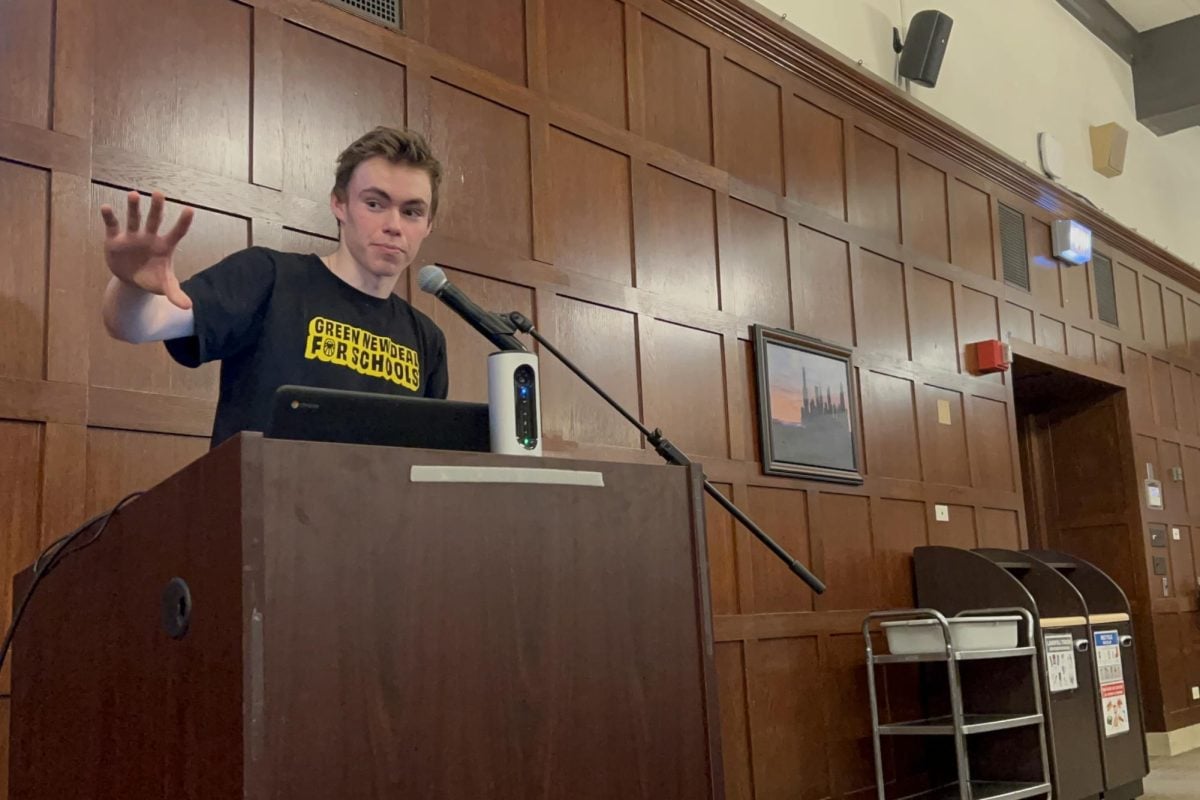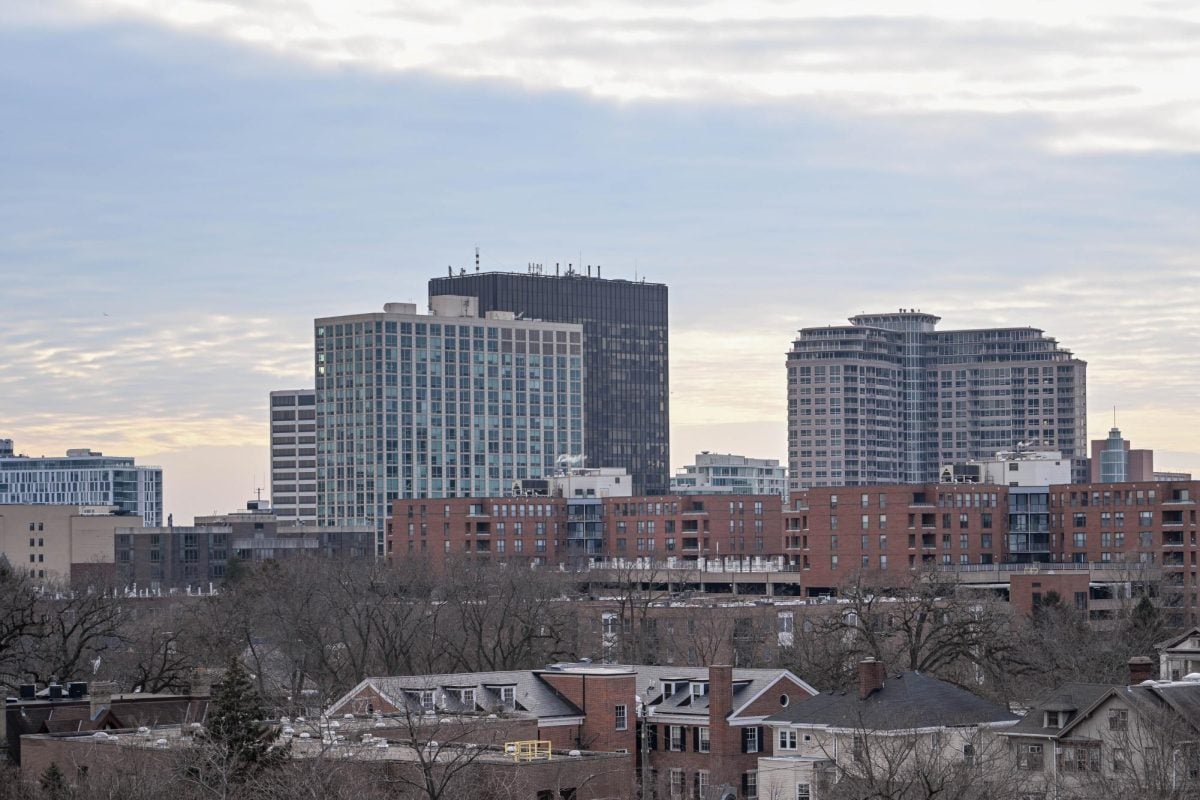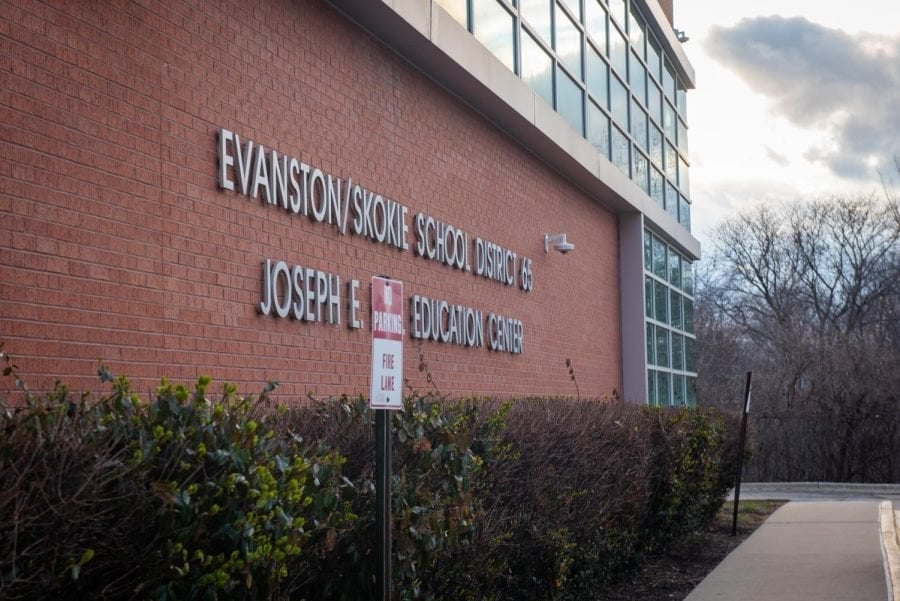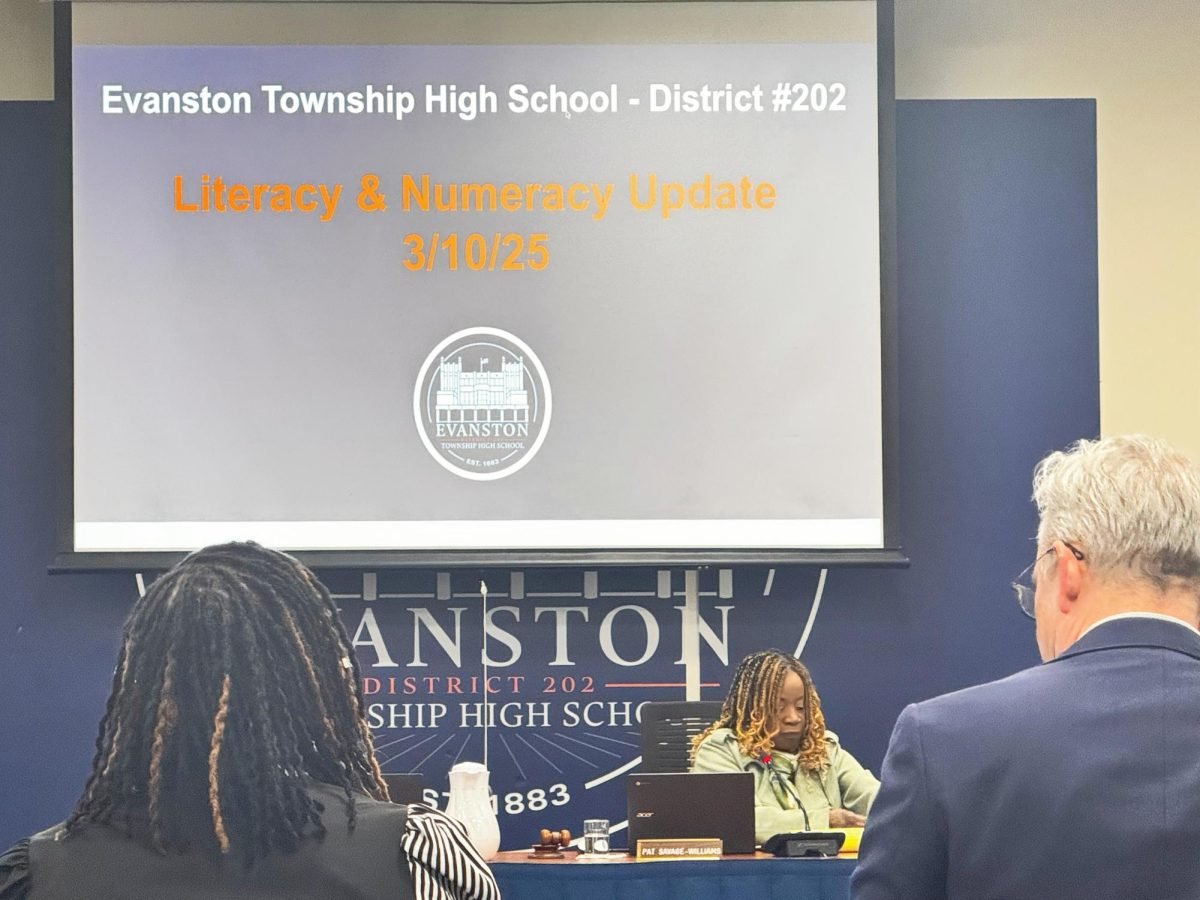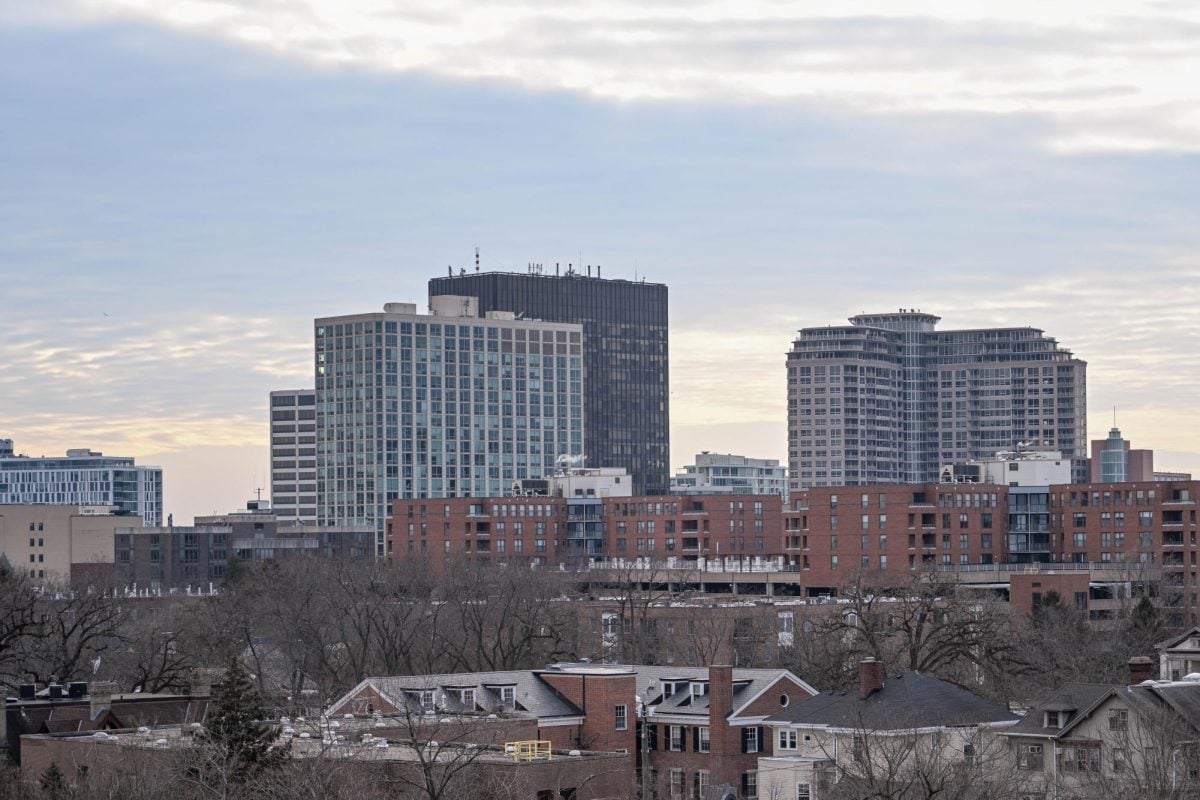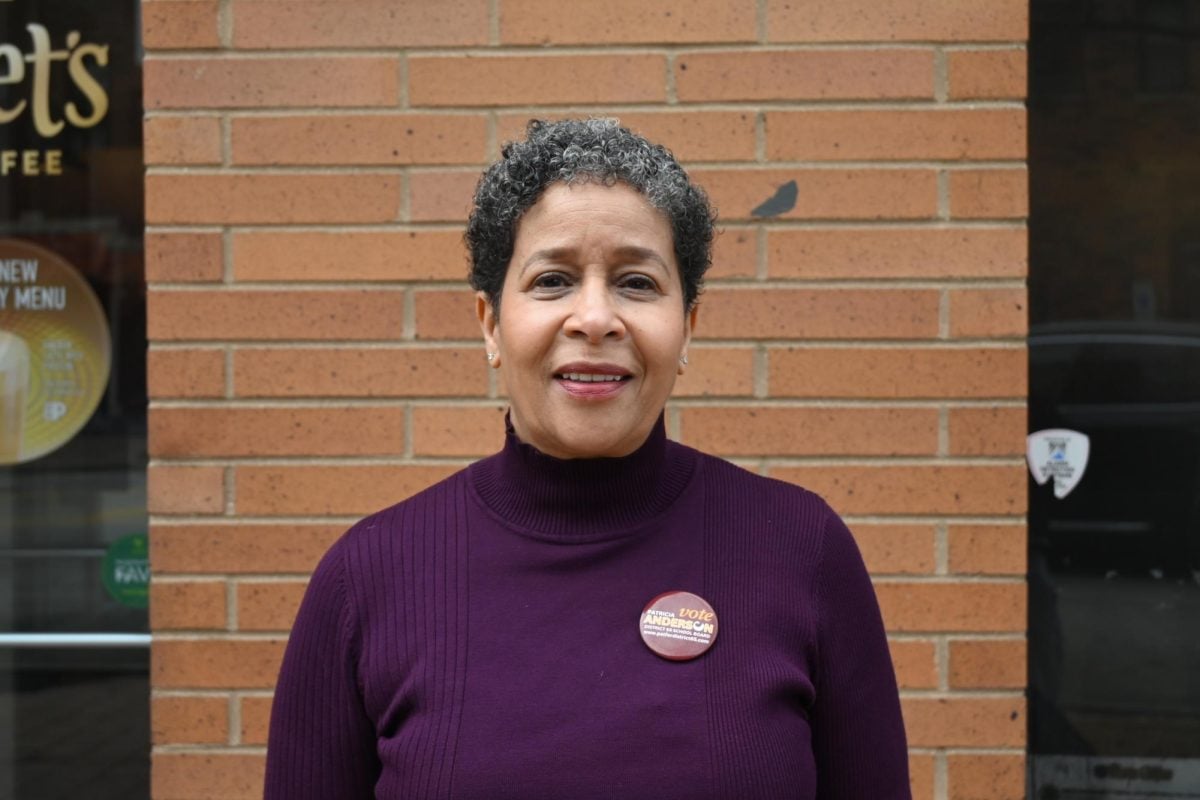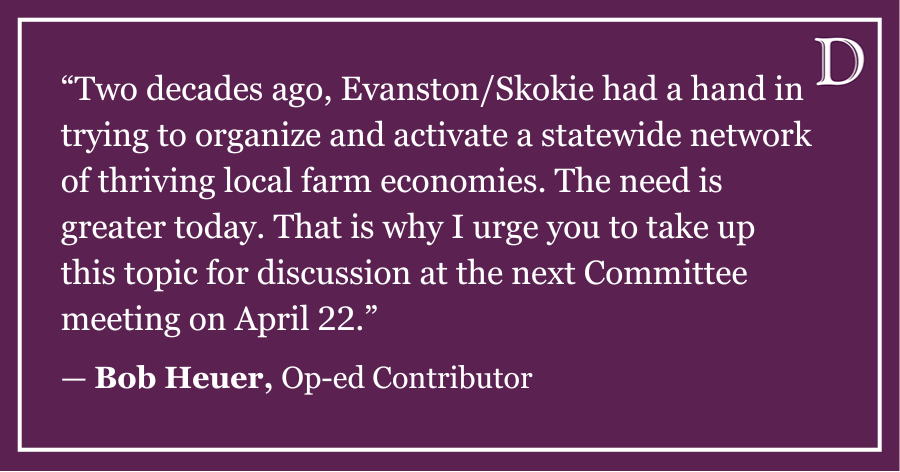The Evanston Township High School District 202 Board of Education unanimously passed a new sustainability policy at its joint meeting with Evanston/Skokie School District 65 Monday.
The sustainability policy, nicknamed the “Green New Deal for ETHS,” lays out goals for the school related to teaching about climate change in classrooms, conserving water and reducing energy consumption and waste. ETHS intends to create a sustainability plan by May that includes specific strategies to meet these goals.
With its Green New Deal, ETHS intends to reduce its water consumption and increase water efficiency by adding submeters to track water usage. ETHS also plans to reduce its 2018 greenhouse gas emissions levels by 45% by 2030.
ETHS is the third school district in the country to pass a sustainability policy.
Jack Jordan (Weinberg ‘22), co-chairman of the board of directors of Climate Action Evanston, said the policy allows for practical, actionable change and that it gives him “tremendous hope” for the future.
“This is trying to prepare students for the future, and the future is climate change,” Jordan said.
E-Town Sunrise — a student-led climate justice group founded in 2019 as part of the national Sunrise Movement — co-hosted an event with Climate Action Evanston before the meeting to celebrate the anticipated passage of the policy.
Young people who are anxious about climate change can come together and connect with community partners to take action, ETHS senior and E-Town Sunrise Hub Coordinator Milo Slevin said.
Several administrators from both districts also presented a Joint Year in Review presentation at the board meeting based on data on social and emotional learning, academics, attendance and post-high school planning.
Students in both districts performed above the state average on the Illinois Assessment of Readiness and Scholastic Assessment Test, according to the report.
The data from the review allows administrators to evaluate students using a holistic approach that helps the districts close opportunity gaps, according to District 65 Board President Sergio Hernandez.
“Taking this comprehensive approach, looking at the root causes … that’s where we start,” Hernandez said.
During an update on each district’s math programs, ETHS Mathematics Department Chair Dale Leibforth reviewed the steps both districts are taking to increase access to advanced math courses, including the Pathway to Honors program and planned updates to course placement criteria for ETHS freshmen.
He added that ETHS began offering AP Precalculus in the 2023-2024 school year, increasing the total number of students taking advanced placement courses.
Historical racial disparities in academic growth — as measured by performance on the MAP test — have decreased from pre-pandemic years, District 65 Director of Mathematics David Wartowski said.
However, data from the Joint Year in Review also revealed overall performance disparities and opportunity gaps affecting Black and Latine students, according to Carrie Levy, District 202’s director of research, evaluation and assessment. This pattern is also visible in the districts’ average grade point averages, according to District 202 Board President Pat Savage-Williams.
Savage-Williams emphasized the importance of continued work in both districts to reduce racial disparities.
“Work is still needed,” she said. “We are seeing these patterns persist.”
Email: edwardcruz2027@u.northwestern.edu
Email: anaviprakash2027@u.northwestern.edu
X: @anavi_52
Related Stories:
— District 202 board discusses early college programs, efforts to improve literacy and numeracy
— City-School Liaison Committee discusses emergency preparedness, wraparound strategies
